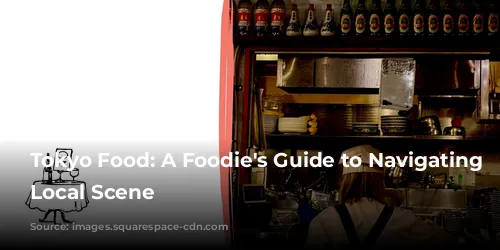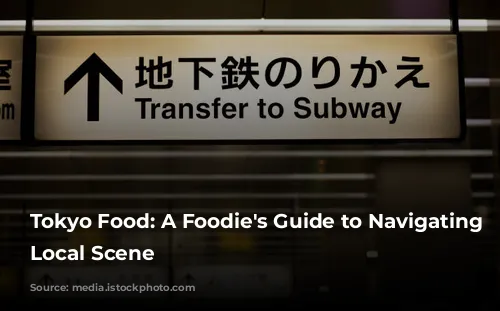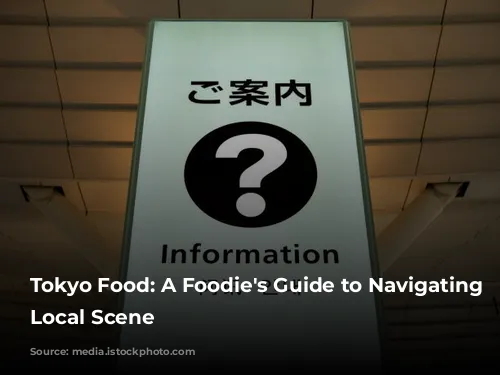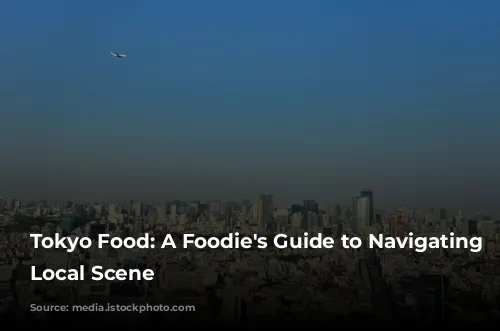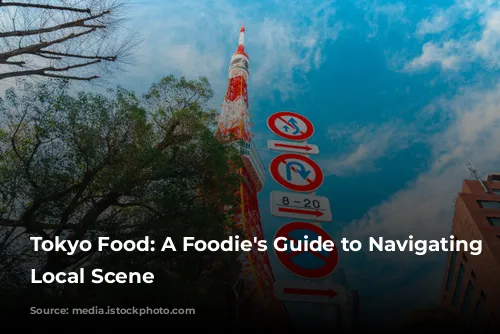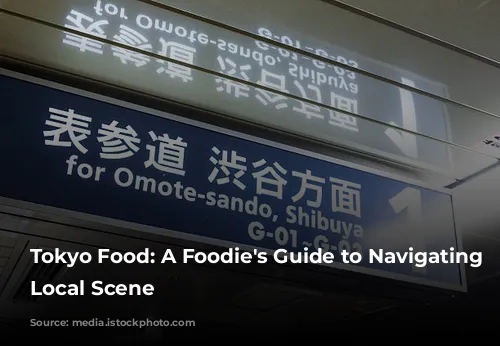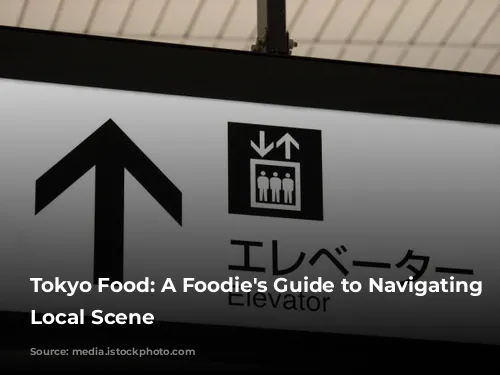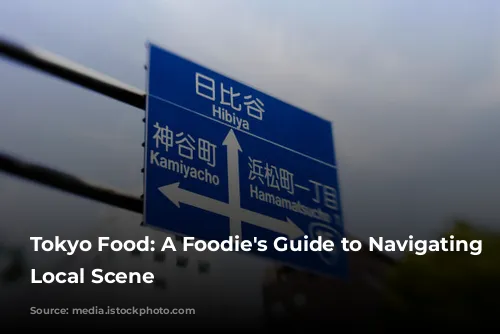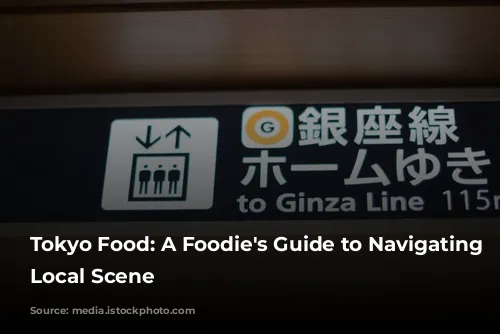Tokyo’s food culture is a whirlwind of deliciousness. There’s a reason why food is so central to Japanese culture – it’s absolutely incredible! From ramen to sushi, the variety is astounding. But even for seasoned travelers, navigating the local food scene can be a bit daunting. Fear not, fellow foodie! I’ve got some tips to make your journey a little smoother.
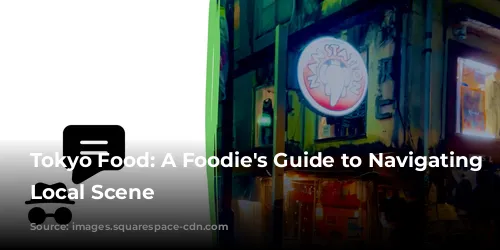
Ticket Machines: Your Gateway to Local Eats
When you walk into a restaurant in Tokyo, don’t expect a waiter to immediately greet you. Instead, look for a ticket machine. These machines are common in ramen shops and smaller eateries. You’ll choose your dish, pay for it, and a ticket will pop out with your order. Simply hand the ticket to the staff and they’ll bring your food to you. So, no need to feel lost or awkward!
If you don’t see a ticket machine, don’t worry. You’ll need to catch the staff’s attention when you’re ready to order. A simple hand wave and eye contact will do the trick. If they don’t see you, feel free to say “sumimasen” (excuse me). This is perfectly normal in Japan. Don’t be shy!
Pro-tip: If you need an English menu, try saying “eigo menu…?”. Even though this is broken Japanese, it’s usually enough to get the point across.
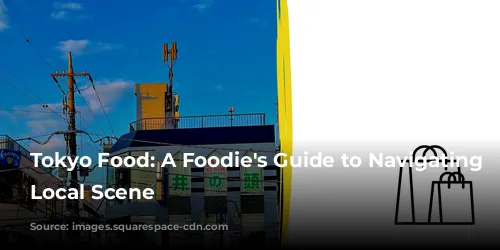
Cracking the Code: Common Japanese Questions
Traveling to Japan is an adventure, and that includes learning a few basic Japanese phrases. You’ll likely hear some common questions, especially when paying. Being prepared will make you feel more confident and less surprised.
One of the most frequent questions you’ll encounter is “fukuro” (bag). This is usually asked at convenience stores and shops. If you need a bag, say “onegaishimasu” (please). If you don’t need one, say “daijoubu” (no thank you).
Another question you might hear is “pointo cardo” (point card). This is usually asked when you’re paying for something. Just shake your head no if you don’t have a point card. Simple!
Here are a few more phrases worth practicing:
- Daijoubu (It’s okay; I’m fine; no thank you)
Remember, the “R” sound in Japanese is closer to a soft “D” sound, like in Spanish. So, “fukuro” actually sounds more like “fuu-kuu-dou”.
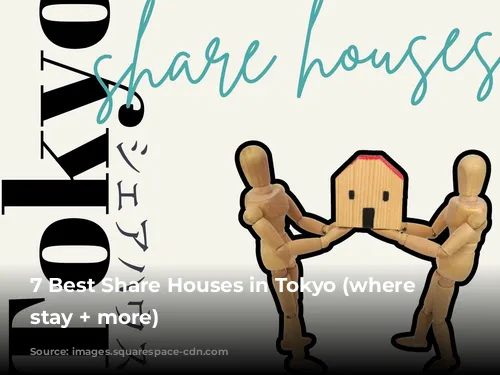
Respecting Local Customs: Essential Etiquette Tips
Japan is known for its unique etiquette. Here are a few key points to keep in mind to show respect for the local customs:
- Avoid eating or drinking on trains. Respect your fellow passengers and keep the train clean!
- Avoid eating while walking around busy streets. Take a break and find a park or a quiet spot to enjoy your food.
- Don’t talk on your phone on the trains. This is considered rude and disruptive.
- If you smoke, look for designated smoking areas. Don’t smoke just anywhere!
- On escalators, stand to the left side. The right side is for walking.
By following these simple guidelines, you can ensure a smooth and enjoyable journey in Japan.
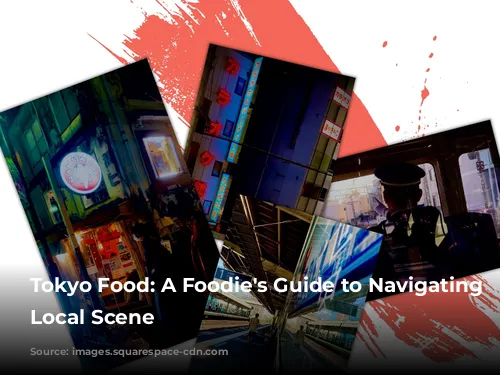
The Share House Experience: A Social Haven in Tokyo
If you’re looking for a more local experience, consider staying in a share house. Share houses are becoming increasingly popular in Tokyo, offering flexible lease terms and lower costs. You’ll have your own private room, while sharing a kitchen, shower, and restroom. It’s a fantastic way to connect with other travelers, locals, and make new friends!
Many share houses are foreigner-friendly and cater to travelers and foreign workers, offering English support staff. This makes it easy to feel comfortable and at home.
I highly recommend staying in a share house if you’re traveling solo. It’s a great way to meet people and experience a more authentic side of Tokyo.

Tokyo: A City for Foodies and Beyond
With its vibrant food scene, rich culture, and welcoming people, Tokyo is a city that truly has something for everyone. I encourage you to embrace the local customs and experience the magic of Tokyo for yourself. You won’t be disappointed!
